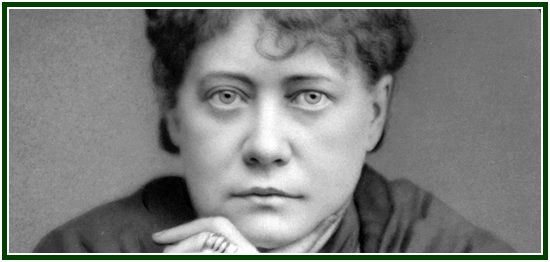
The Purity of One’s Heart Brings About
Perseverance, Detachment, and Humbleness
Carlos Cardoso Aveline

* There is no need to say “Amen” to the numerous forms of ethical decay that surround us. Not at all. It is better to say “Amen” to the noblest part of our own conscience, and identify and abandon all the mechanisms of socially organized idiocy, the established consensus of the absence of ethics, and other jewels of technocentric modernity.
* Selfishness is a passing nightmare. Humanity is invisibly guided by fraternal feelings, and right now all of us are immersed in the law of mutual help. There is no power stronger than the power of selfless goodwill.
* What is the result of getting attached to personal gratification on the physical plane and on the realm of feelings? The desire to feel surrounded by this and that particular form of comfort softens one’s will. It dissipates internal strength and makes one a slave of bad habits.
* Physical and emotional discomfort teach us detachment. They strengthen one’s will, dispel illusions, increase one’s realism and allow us to walk the path of truth. The blessing is inward, the wounds are outward.
* Victory is not for those who love comfort above all else, for victory requires sacrifice. Eternal wisdom is beyond the reach of those who prefer to live in indulgence. Through the practice of austerity, an indispensable magnetic force is gathered.
* The bliss of the spiritual soul does not depend on personal victory or defeat. Regardless of circumstances, the truth-seeker remains in direct contact with his inner self, whose substance is peace and contentment. He is happy to be humble.
Brotherly Advice to William Judge
* In 1879, when William Judge needed friendly advice, Damodar Mavalankar – who assisted Helena Blavatsky in many ways – wrote in a letter to him:
* “I’m very sorry to hear you write so disparagingly to Madam Blavatsky about your feelings and the state of your mind. Is it not surprising to see that a man like you after having made some progress in the study of Theosophy should despair at the very moment he is about to enter the very threshold of true knowledge? It seems to my mind ridiculously strange that a very thirsty man should be in quest of water and that when he has found it he should instead of drinking it, turn his back against it and fly from the only place where he can quench his thirst.” [1]
* Near the end of the letter, Damodar adds: “Do not therefore despair but go on with confidence, and success is at hand.”
* William Judge was 28 years old. Damodar Mavalankar was 22. It is said in mystical traditions that purity of mind and heart brings about humbleness, detachment, contentment – and perseverance.
The Theosophical Chessboard
* W. Q. Judge wrote: “The plain unvarnished truth, which hurts no one save the man who denies it, is that H. P. Blavatsky was the head, front, bottom, top, outskirts, past and future of the Theosophical Society. We were all but pawns on the chessboard. What is the use of permitting vanity to influence us toward denying the facts?” [2]
The Decision to Improve Oneself
* Can a pilgrim effectively train himself? In his “Dictionnaire de la Volonté”, French author Jean des Vignes Rouges gives us this advice:
* “Make the decision (…) that in all circumstances of your life you will endeavor to consider as an essential duty the obligation to become stronger, more active, more self-controlled, more devoted to others, more noble, more intelligent, more virtuous, in order to ensure the integral expansion of your being. This will result in a sense of personal dignity. You will be aware of being a person, that is to say, an individual endowed with well-defined original qualities, towards whom you have duties.”
* Jean des Vignes Rouges goes on:
* “This feeling of your dignity, cultivate it in every way. Tell yourself once and again that you are perfectible. Think about your privileges as a human being. An animal can only indefinitely repeat those acts that are necessary for its preservation; you, on the other hand, are capable of inventing new forms of behavior; a sacred anxiety torments you and pushes you towards a grand destiny. There is within you, in your soul, deep within yourself, a mysterious intuition which you must obey in order not to lose your life.” [3]
* The same principle is taught by the Masters of the Wisdom. In one of his letters, while giving advice to a Western student, an Eastern Mahatma reproduces these verses from Tennyson:
“Self-reverence, self-knowledge, self-control,
These three alone lead life to sovereign power.” [4]
* Self-reverence, here, is an impersonal attitude of respect towards one’s higher self or spiritual soul.
NOTES:
[1] “Damodar and the Pioneers of the Theosophical Movement”, compiled and annotated by Sven Eek, TPH, India, second printing, 1978, copyright 1965, 720 pp., see p. 25.
[2] These words are quoted with due bibliographical sources in the article “The Main Founder of the Movement”.
[3] From “Dictionnaire de la Volonté”, by Jean des Vignes Rouges, Éditions J. Oliven, Paris, 320 pp., 1945, see pp. 166-167.
[4] See “Letters From the Masters of the Wisdom – First Series”, pp. 205-206.
000
The article “Thoughts Along the Road – 72” was published as an independent item in the associated websites on 22 September 2023. An initial version of it is part of the July 2021 edition of “The Aquarian Theosophist”, pp. 15-16.
000
Print the texts you study from the websites of the Independent Lodge. Reading on paper helps us attain a deeper view of philosophical texts. When studying a printed text, the reader can underline sentences and make handwritten comments in the margins that link the ideas to his personal reality.
000
Read more:
* Other writings of Carlos Cardoso Aveline.
000

Helena Blavatsky (photo) wrote these words: “Deserve, then desire”.
000